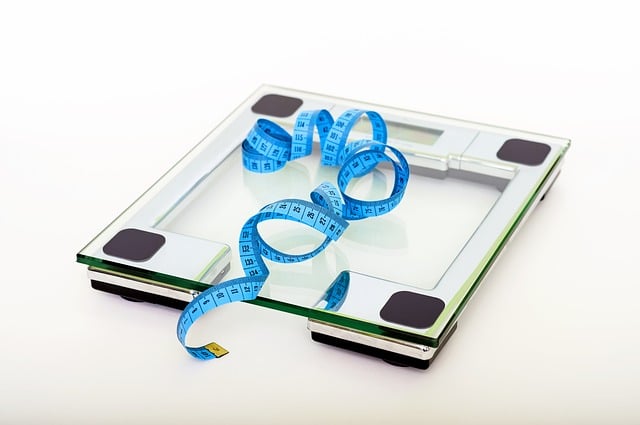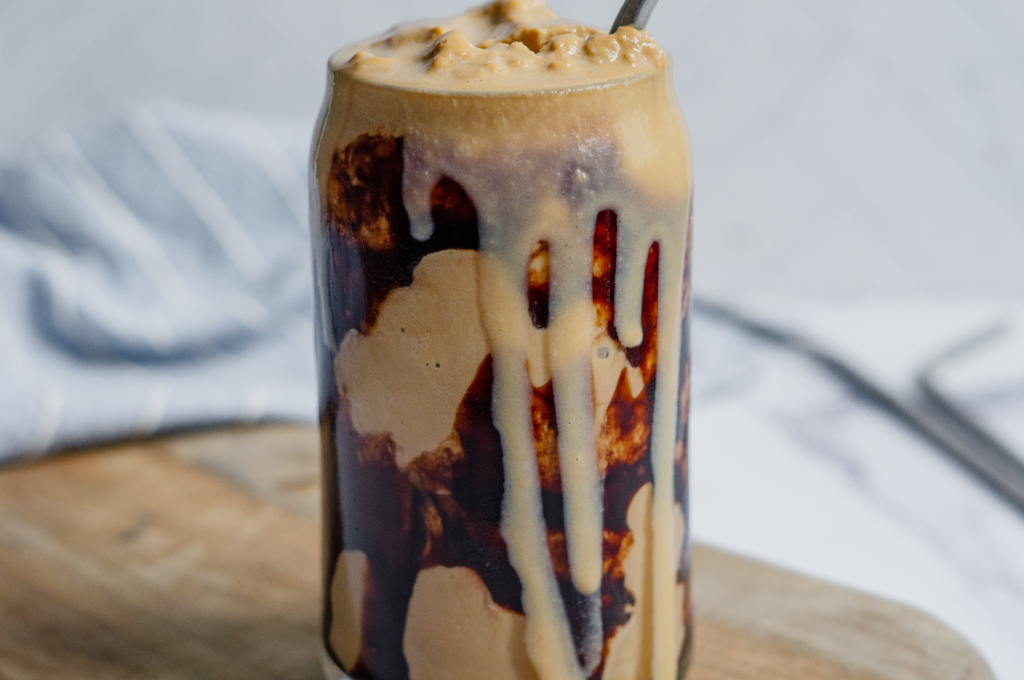“Robbie, I’m doing everything right. I’m hitting my macros. Drinking a crap ton of water. I’m sleeping 8 hours a night. I’m even working out four to five times a week. But nothing is changing! What am I doing wrong? Why is this not working?”
As Stronger U coaches, we get frantic messages like that a dozen times a week. My first response is to look at a client’s numbers, where they’ve lost so far, how much they’ve lost, and how accurate have they been in their reporting. And I know clients hate being told to “be patient.” But the truth is: fat loss takes time.
However, even if you’re following the program to a T, there may be other reasons that you’re not seeing success. And these reasons are sometimes within your control and sometimes outside of your control.
So I’m gonna put my David Letterman hat on, with a twist, and drop the Top Nine Reasons You’re Following the Plan but not Seeing Success.
1. It’s been one week
The Earth travels ~584 million miles to orbit the sun in a year. Now, if you use that fancy math we learned in grade school, that comes out to ~1,598,000 miles per day. So in one day, the Earth goes through 0.27% of its orbit.
It feels like we’re never gonna make it around the sun. Except, we do. Every year. One day is less than 1% of the total miles the Earth has to travel in a year. Do you see good ole Mother Earth freaking out about the distance she has to travel?
It takes time to make it around the Sun. And it takes time for your body to lose fat. Hypothetically, let’s say Client A loses 20 pounds in 12 weeks. Wahoo! And though 20 pounds is a massive accomplishment—you know, like traveling 380 some odd million miles in a year—if you break it down to weeks or days, you’re gonna think, “wtf is going on here?”
20 pounds in 12 weeks equates to about 1.52 pounds lost in a week. Break that down even further and you get roughly .21 pounds lost per day. And that’s assuming that this hypothetical client loses weight in a nice, pretty, consistent manner. Which we all know is something that actually never happens.
See? This whole thing takes time. So chill out. Trust the process. The Earth trusts that its orbit will take it around the Sun. It’s been doing it for billions of years.
And if you follow the plan, then your body will lose the fat too. But it ain’t happening in a week. Or a day. Or in 5 minutes.
2. Men: you have less muscle than you think
Alright fellas, it’s time for me to speak to you directly. Look, we have it pretty easy when it comes to fat loss. For many of us, we start eating a little better, lift some weights, and voila, fat melts off our bodies faster than Arnold Ernst Toht’s face in Raiders of the Lost Ark.
That’s not always the case. If you’re a former athlete who played sports from the time you could walk until college, you’re gonna have it easier than a guy who spent his youth playing World of Warcraft and eating Cheetos. Why?
Because, well, I hate to tell you this, but you don’t have as much muscle as you think. I mean, it looks like that in the mirror, but trust me, those biceps aren’t as muscular as you think. It’s an illusion. What muscle you do have there is pushing the fat in your arms up “making it” look larger.
Not only did I just tell you that you’re fatter than you think (sorry), but I just told you that you have less muscle. Cue up the Dashboard Confessional because this is a bitter pill you’re gonna have to swallow fellas.
And this sucks for a couple of reasons:
- Because you have less muscle mass than you think, it means you’re gonna be eating less food overall. And that eventually means this whole dieting thing is gonna test your mental fortitude and will.
- Whatever you think your body will look like at “insert body fat percentage here,” it most likely will NOT look like what the photos show you. And that’s because, again (sorry), you don’t have the amount of muscle you think you do.
What does this mean? Well, it means you’re gonna have to be patient (see #1 above), keep lifting weights and progressing your strength (maybe even add some walking into your plan), and it means whatever physique you’re trying to accomplish is likely going to take longer than you imagined.
3. Ladies: Your cycle causes a number of things to happen that can impact the scale.
Sure, I may be a guy. I may not actually have to go through what you go through each month. But I like to think I’m also a smart guy who knows when to pass the baton to someone more experienced and versed in this realm, that’s what I’m gonna do. And I’m gonna ask Dr. Jessica Bachman to tag in here and drop some knowledge.
“Premenopausal clients can often experience a HUGE fluctuation in weight right before the start of their period. It’s not unusual to see an increase on the scale of 2-7 pounds a day or two before and the first two days of the menstruation. Increased levels of estrogen, progesterone, and prolactin lead to the increase in water retention. They can also affect your GI tract which can lead to constipation and bloating.
Note: These increases are caused by WATER retention and hormonal changes — NOT changes in body fat.
So, while the scale may be up for a few days, there’s no detrimental effect on your ability to lose body fat! Of course, it can feel a bit defeating. You hit your numbers, exercise, drink water, get plenty of sleep, but the scale is up and not down.”
Ladies: I highly encourage you to TRACK when you get your menstrual period. You can use apps like Clue, Flo, or Glow. Then give that information to your coach so, when the time comes, they compare your current weight to your weight during the same time last month.
That’s a much better indicator of weight loss progress versus comparing to the previous week. So, no matter what the scale tries to tell you, don’t let this time of the month make you feel like a failure—you’re still making progress IF you’re sticking to the plan.
4. You workout too much
More money. More love. More time. More food. More everything. I mean, more is better, right?
When you workout you burn calories. So logically, it would be safe to assume that the more you workout, the more calories you burn, and the more weight you lose. Oh my God, you just figured out the secret to all of this and it’s so simple. But, it’s not. Because more is not always better.
Sure, moving more than you do already might be a good idea. Especially, if you’re someone who sits at a desk for 8 hours a day, then goes home and sits on the couch and binges Netflix. If that sounds like your daily life, then adding a 30-45 minute walk in every day will definitely help you burn a few more calories.
But if you’re committed to the gym and are already there 3-4 times a week, extending that to 5-6 (maybe 7) days a week isn’t ideal.
Working out more ≄ losing pesky pounds faster.
One reason why you might not see the scale moving is because you workout too much. When you engage in intense weight lifting or cardiovascular exercise, you cause muscle damage. Now, that’s not as bad as it sounds. To build muscle, you need to break down muscle so your body can build it back stronger. So, like, you have to cause some straining to your muscles to grow more of it or make it stronger.
But that causes inflammation. Inflammation is your body’s way of healing and protecting itself. During normal exercise, you cause micro-tears to your muscles. To repair and rebuild your muscle, your body increases fluids — blood, white blood cells, blood proteins etc — to the area. This is a healthy response by your immune system.
Chronic exercise with no rest, however, doesn’t allow your body the proper time it needs to heal. It’s in rest, you know, those days you don’t go to the gym or don’t workout a certain muscle group, that your gains are made. But if you hit it hard every day and don’t allow your body time to heal and let go of inflammation, you’re gonna retain a ton of fluids.
Inflammation can be a double-edged sword:
- Acute inflammation is a stressor that initiates a temporary but powerful response that helps your body rebuild tissue. <- This is what you want.
- Chronic inflammation — high-intensity CrossFit workouts or marathon training that you do every day with no rest — decreases your performance and ability to recover, but may also increase your chance of injury. <- This is not what you want
One of the first things I look at or ask my clients about when the scale hasn’t budged for a few days is how often they’re working out. If they’ve worked out 3-4 days in a row, I advise them to take off a couple of days and then weigh themselves after a few days of rest. What happens then? Usually, they see the scale drop a few pounds. And it’s all because they were holding onto more fluid due to inflammation.
5. Stress levels are in the stratosphere.
At one point or another, it seems like everything on Earth has been the scapegoat for rising obesity rates:
- McDonalds
- carbs
- fat
- sugar
- processed foods
- gluten
- grandma’s apple pie
And in recent years, more and more people have begun to blame cortisol for our obesity woes. But like all things, there’s a massive misunderstanding about cortisol.
Every hormone in our body has a purpose. Cortisol is an energy regulator. Its primary function is to move energy from fat stores to the cells that need it. And this was vital to our survival thousands of years ago. If you were confronted by a growling sabertooth tiger, you had two choices: fight or flee. And in that moment of decision, your body would kick up its cortisol levels to divert energy to the chosen pathways of either using your fists to punch said tiger in its face or into your legs to escape.
By definition, cortisol is a fat-burning hormone. And cortisol levels are raised during times of restricted calories, when you get angry, or when you lift weights. So why has cortisol been deemed a fat storing hormone if it actually shuttles energy out of your fat stores?
One reason is that a study at Yale University found that men and women with higher stress levels had increased levels of abdominal fat. But correlation does not lead to causation, unless you’re the media who needs to tout they have definitive proof that elevated cortisol levels make you fat.
The irony here is that cortisol is an energy regulator that tells your cells to break down fat into free fatty acids for your cells to use for fuel. But here’s the weird thing: while cortisol increases lipolysis (fat-burning) around your entire body, it weirdly enough spares abdominal fat.
If cortisol remains high for too long, it can lead to muscle degradation. And when you lose muscle mass, you slow down your metabolism.
All of this is about to come together, I promise. The truth of the matter is this: weight gain comes from eating excess calories, period.
So that means cortisol is off the hook right? Well, no. Because everything affects everything, when cortisol is elevated for prolonged periods, your body will elevate hormones like ghrelin — the hormone that stimulates appetite.
Cortisol is high. Now your body up-regulates ghrelin. And now you’re hungry all the dang time. But food is comforting. And right now with all the stresses of life, all you want is a little dang comfort.
So you stuff your face with all the best high-fat, high-carb, super high-calorie foods. This is the reason why cortisol is demonized. Not because it stores fat, but because it stays so high that everything else gets out of whack and then to make ourselves feel better we eat foods that make us feel good.
Everything affects everything.
6. You’re not drinking enough water.
Here’s a list of things water does for your body:
- dispels toxins
- regulates body temperature
- aids in digestion
- promotes healthy skin
- dissolves water-soluble vitamins like Vitamin C, B6, B12, Niacin, & more.
Water plays a huge role in every chemical reaction that happens in the mobile chemistry labs you use every day to live, laugh, eat, and binge Netflix.
And when it comes to fat loss, proper hydration will help your body burn fat more efficiently.
Good hydration helps your liver break down fatty acids to use as fuel. And it also keeps your kidneys running in tip-top shape.
When you’re dehydrated, however, your liver has to pick up the slack from your less efficient kidneys to rid the body of toxins. This means that the fat burning capabilities of your liver take a hit.
Dehydration can even cause you to have poor workouts. Drinking enough H20 could be the difference between hitting those last 2-3 reps, adding an extra 5 or 10 pounds to the bar, or erasing a few more seconds off your record run time.
7. You don’t sleep
One of my favorite games on the Xbox 360 was Fallout 3. There was a secret way to get more experience points in this game. When you chose to let your character sleep on any random mattress or cot you found, your character would get a bonus 10% experience points for a certain period of time.
That’s what sleep does for you when you’re trying to burn body fat or build muscle. But what do most people in developed nations do today?
We sleep less, drink more coffee, and push ourselves to the brink of exhaustion. Now, that might give you more time in the short term. But over time, that will derail and screw up your health worse than anything else.
In 2016, the Center for Disease Control found that nearly 35% of Americans get less than 7 hours of sleep a night. Depriving yourself of sleep raises your risk of hypertension and weight gain, weakens your immune system, wrecks your hormones, and prevents your body from having ample time to rebuild and repair all that hard work you do in the gym.
Sufficient hours of sleep — 7-9 hours of sleep a night for adults over 26 — will keep you mentally strong and alert, and helps maintain good hormone health. Plus, during the deeper parts of sleep, your body releases growth hormones which you need to rebuild your body’s tissues.
You probably know that experts recommend exercise to improve your sleep. But there are other things you can do to get more shut-eye.
Here’s an easy acronym to remember, SLEEP.
- Sleep in a cold room – cold temperatures help you fall asleep faster.
- Leave yourself 30 minutes to of no screen time before bed – the blue light of your phone or computer confuses your brain by making it think it’s still daytime
- End any caffeine consumption before 3 PM – caffeine has a half-life of 6 hours, drinking it late in the day can keep you up later
- Establish a relaxation ritual to wind down your mind before bed – a 2009 study from the University of Sussex found that reading for 6 minutes before bed reduced stress by 68%.
- Purposeful about the bedroom. Treat the bedroom as a sacred space; never allow electronics of any kind to breach that space. Leave your phone, TV, or tablets outside of your bedroom.
I’ll leave you with this question I once heard Stronger U Coach Josh Citron say.
“If you get 6 hours of sleep a night now, that would give you 42 hours of sleep a week. And if you were able to get 7 hours of sleep a night, that would give you 49 hours of sleep in a week. That’s an extra night of rest by simply going from 6 to 7 hours. How great would you feel with an extra night of sleep?”
8. Some medicines you’re on “can” affect your ability to burn fat as effectively
I trained as an actor in college and for the first few years of my professional life. I played a number of roles, but the one role I have never played on stage or in front of a camera is as a doctor. Hugh Laurie might have spent enough time playing Dr. House that he picked up a thing or two, but when it comes to medical things, I defer to the experts.
And when it comes to burning body fat, “some” medicines can have an impact on your ability to burn fat. But thank God the official Stronger U doc, Dr. Spencer Nadolsky, wrote a book that includes a chapter on medicines and weight gain.
Here’s a short list that I pulled from his book. For more information on how these drugs interact with your fat loss goals, talk to your doctor and see if there’s another option you can take that may not cause weight gain.
Medications for Depression:
- Tricyclic antidepressants — Amitriptyline; nortriptyline; imipramine; desipramine
- SSRIs — Paxil; Celexa; Lexapro; Prozac; Zoloft
- SNRIs — Effexor; Cymbalta; Pristiq; Savella; Fetzima
- Mirtazapine (Remeron)
Mood Stabilizers & Anticonvulsants:
- Depakote
- Neurontin
- Lyrica
- Tegretol
- Sabril
- Lithium
Antipsychotics:
- Zyprexa
- Clozaril
- Seroquel
- Risperdal
- Geodon
- Abilify
Blood Pressure Medicines:
- Toprol XL
- Tenormin
- Inderal
- Coreg
- Visken
- Bystolic
Birth Control:
- Depo-Provera
- Nexplanon
Glucocorticoids:
- Prednisone
- Methylprednisolone
Over-the-Counter Antihistamines*:
- Benadryl
- Vistaril
- Claritin
- Allegra
- Zyrtec
*weight gain can occur with long-term use of these medicines; short-term, not so much
Before taking these medications your doctor should have warned you of the possible side effects. If not, it may be worth having a conversation with your doc to see if there are other options you can take that may be more weight neutral or that don’t affect your fat loss efforts.
9. You’re not following the plan even though you say you are but deep down you know you’re a dirty rotten liar.
OH MY GOD. Did you just call me a dirty rotten liar, Robbie? Yes. Yes, I did.
And I do not feel sorry for saying that. Because the truth is, only you know that you’re lying to yourself. You know the stories you’re making up to comfort your mind. You hear the little voice inside of you telling you that you are, in fact, lying to yourself. But you ignore it. Why?
Lies are security blankets — they keep us warm and make us feel good. But the truth, real, honest to God truth, hurts. It doesn’t make us feel good. It shows us where we’re failing. It shows us our true reflections. And most of the time, we don’t want to see our true reflections.
But the truth doesn’t have to be all doom and gloom. When you look at yourself in the mirror of your soul, no matter how painful that reflection may be, you always—always—have a chance to be better. And you don’t need to imagine a complete makeover. Small steps lead to huge leaps.
So if you know you’re not following the plan, the first thing you should do is text your coach. Let them know that you’ve been lying to yourself (and maybe to them as well). Confession is the succor for your soul.
Your next step is something I talk to my clients about all the time: control. Regain control. And it doesn’t need to be a Sisyphean effort either. Find the smallest and easiest aspect of life for you to gain control of. It could be as simple as making half your plate veggies, having a great breakfast, planning your meals for the week, hitting the gym, drinking more water, etc.
Whatever it is that you’re trying to gain control of, make sure that it’s something you have direct control over. You can’t control the scale. You can’t (really) control your waist measurements. You can’t control the people you work with and the foods they bring in. But what you can control are your actions. And it’s what YOU control that leads to the results you want.
So first, stop lying to yourself. If you’re not following the plan, the only way to get back on plan is to confess that you’re not giving it your all. Second, make that confession to your coach. That’s what we’re here for. Then work with us to help you get back on plan.
This is not easy. Fat loss is, and can be, an arduous process filled with numerous obstacles. And at times, you’ll feel like you’re doing everything right but it seems like nothing is changing. The truth is, as long as you’re doing 80% of the things you need to do every day — hitting your macros, exercising 3-4 times a week (at minimum), getting sufficient sleep, drinking half your body weight in water, and communicating with your coach — you’ll see amazing progress. But it’s not gonna happen overnight.
“Success is a journey, not a destination. The doing is often more important than the outcome.” – Arthur Ashe









